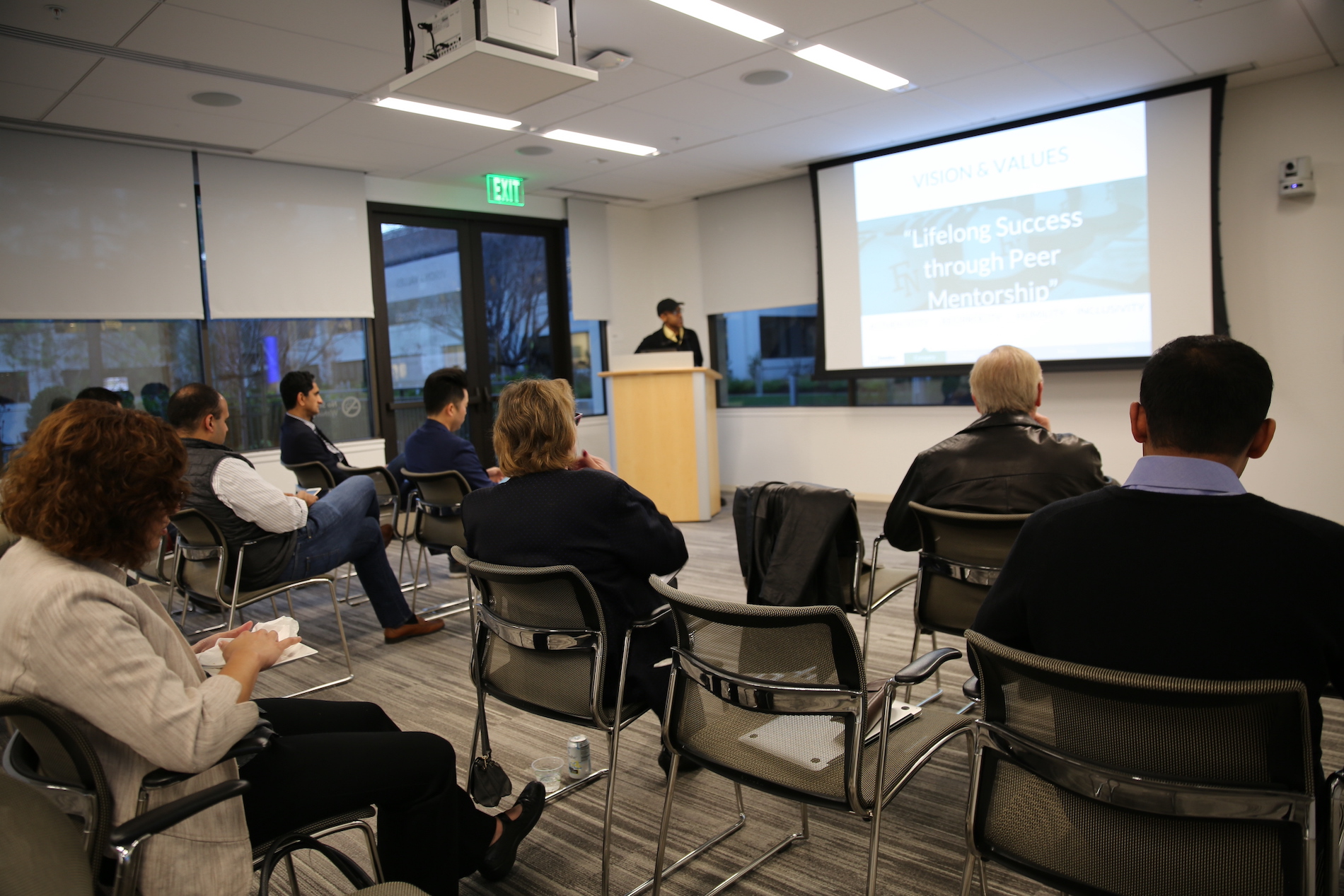
According to Alvaro Chacon, founder and CEO of the creative and technical digital agency Stateside, developing a long-term product development plan is important from the start. He recommends founders ask questions like: “How does your product development strategy fit into your business model? What is your technology roadmap and how important is security to you?”
Alvaro is equal parts business manager, strategist, and developer, having worked both on digital production as well as on marketing in ad agencies. Alvaro created Stateside to leverage his international networks and fuel global demand for high-quality digital solutions and talent.
During a Founders Network event, Alvaro will offer insights and advice about choosing development partners and/or building an internal development team.
To learn more about building an internal development team, see if you qualify for membership and check out the webinar from April 29.
Register at Founders Network and check if you qualify for full membership and get actionable advice on:
- Building a long-term growth plan and technology roadmap
- How to choose a development shop
- Advice on scaling a development team
What follows is an overview of Alvaro’s thoughts on choosing development partners and planning a product development budget.
“It's very important to think about your product development plan long-term. How does it fit into your business model?” - @foundersnetwork Share on XFreelance Developers Versus Development Shops
For founders interested in outsourcing development, the first decision they might make is choosing between freelance developers versus full-fledge development shops.
“There are a lot of startups that are bootstrapping and just want to build something real quick,” Alvaro explained in an interview. Money-conscious founders might go to Upwork or find cost-effective freelance developers outside of the U.S. to build out an initial product. And there are several known problems to this approach, such as unreliable quality and hit or miss deadlines.
But there’s a larger issue that Alvaro points to, as well: scalability. When your project is a one-off assignment for a freelancer, how sure can you be about the quality of the app’s databases, for instance?
“Something that you’re never going to find with a freelance developer or somebody from Upwork is a QA department. So, when do you have to integrate quality assurance into your practice?”
As opposed to a freelance developer, a true development shop can have more skin in the game:
“The thing about a freelancer is that they can leave at any moment. And if you get ghosted by somebody in Argentina, you’re not going to get on a flight and try to find them. But when you work with a dev shop, at least there’s the accountability of a centralized place who will assume responsibility. And if that shop has a presence in the United States, that’s even better because they’re like legally bound and liable — they are under contract.”
The bottom line is that you want to build a long term relationship and “a freelancer is never going to care about your work or your company as much as somebody who is in-house or a partner.”
“Look for a serious dev shop that has redundancies, that has DevOps, that has not only quality control, but quality assurance.” - @foundersnetwork Share on XSo, Do You Build An Internal Team or Partner with a Development Shop?
So, a dev shop is the way to go if you choose to outsource, but should you outsource at all? Or is it better to hire internally?
There are pros and cons to building an internal development team versus starting a long-term partnership with an existing dev shop. For instance, if time is important, how quickly can you find and hire quality talent? How many misses do you have to endure before you can find the right people?
Either way, you want to be thinking long term: having a growth plan in mind that includes things like how you’ll handle quality assurance or what might happen when you reach an enterprise level.
It may seem odd to be thinking so far ahead, but the path you choose now will have a major impact on your ability to scale in the future. And these big picture questions are things that founders often don’t think to talk to dev shops about in detail.
Founders may choose to work with a development shop because they need the time to create a successful product and revenue model in order to attract investors. This approach can work well but, Alvaro warned, “Once you reach a certain critical mass, you might have to get rid of what you have and start from zero, and that will be more costly in the long run.”
If you do decide to outsource to an independent development shop, you want to look for “a serious dev shop that has redundancies, that has DevOps, that has not only quality control, but quality assurance.”
A hybrid approach that Alvaro often sees executed well is to keep the technical leadership in-house and to outsource junior work that is less pivotal to the product’s core functionality.
“I always say approach product development as you would approach building a house. There are going to be changes and new features that you don't expect.” - @foundersnetwork Share on XTips on Developing a Product Development Budget and Growth Plan
- Include maintenance and enhancements as two separate needs.
“A lot of people think that they’re just going to launch their website or app and that’s it. But in reality, there’s always going to be security updates, browser updates, and product enhancements.”
- Budget for a project manager.
Alvaro often sees small startups thinking they don’t need to pay for separate project management, believing that developers can manage themselves. “Ninety-nine percent of the time, you end up missing deadlines because there’s an underestimation of the amount of work needed to build something robust and large scale. A good project manager (and QA team) will help raise flags about potential problems much earlier.”
- Budget 25-30% over what you think you’ll need.
“I always say approach this as you would approach building a house. There are going to be changes and new features that you don’t expect. Then once the product is built, you will want to incorporate all early-stage feedback as soon as possible which should be included in maintenance and enhancement fees.”
- Make sure you own your own code and data
I have gotten calls from potential clients telling me, ‘We already did all of this work, but don’t own it so we don’t know how to retrieve it. Can you help us with that? We don’t want to pay for the work we already did.”
There are often many reasons that businesses end up in this situation, such as building off of existing platforms.
On the data side, folks try to save costs by building on a platform like Shopify. “Which is fine,” Alvaro said, “But do you own the data? And how can you migrate that data to other platforms? Because at some point, you may want to migrate that data to your own platform that you’re hosting yourself, but that could be an issue when you reach a certain level.”
- Budget for a CTO or take the time to understand the basics of software development
“If you’re bootstrapping as an entrepreneur, it’s always good to just read a little bit about Github and code repositories, for example,” Alvaro said. If you’re able to hire a CTO, they can help you avoid pitfalls like not owning your own code or the dangers of not having quality code backups. But if you can’t afford a CTO, then, as a founder, it’s your responsibility to understand things like code source control.
When building a long-term plan and forming relationships with developers, Alvaro recommends you keep in mind that “there’s no such thing as a one size fits all, but the bottom line is that you get what you pay for.”
To learn more about building an internal development team, see if you qualify for membership and check out the webinar from April 29.






